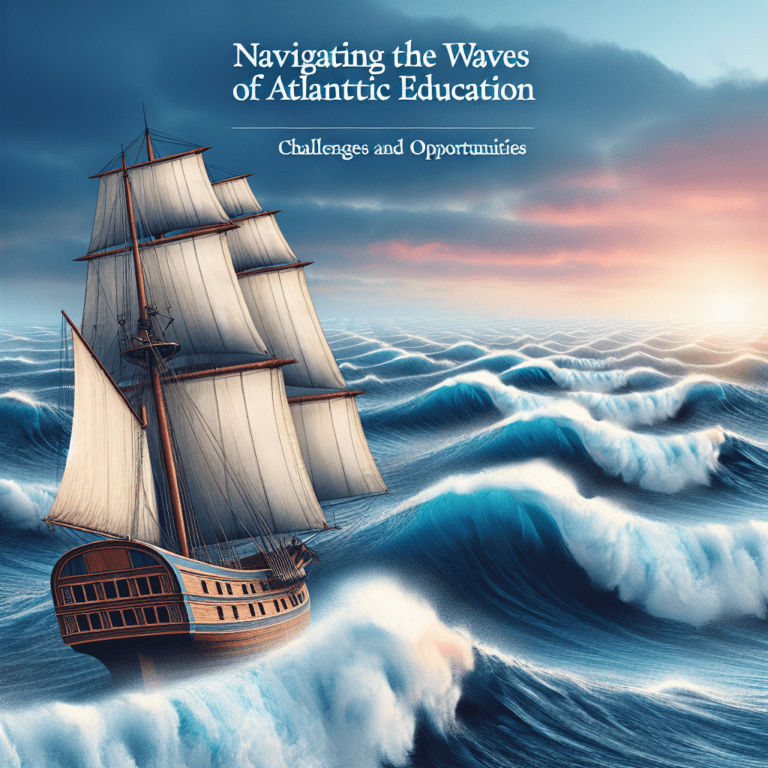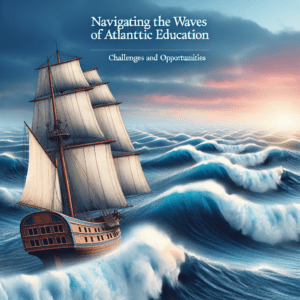The Atlantic region of Canada boasts a rich history and culture, with its vibrant communities and stunning landscapes. When it comes to education, navigating the waves of Atlantic education can present both challenges and opportunities for students, parents, and educators alike.
One of the major challenges facing Atlantic education is the issue of access. Due to the region’s dispersed population and rural areas, students may face barriers in accessing quality education. This can be exacerbated by limited resources and funding for schools in smaller communities. As a result, students in Atlantic Canada may not have the same educational opportunities as their counterparts in larger urban centers.
Another challenge facing Atlantic education is the issue of retention. Many young people in the region may choose to leave their communities to pursue higher education or job opportunities elsewhere. This brain drain can have a negative impact on the region’s economy and future prospects. Retaining skilled workers and professionals in the Atlantic region is crucial for its growth and development.
However, despite these challenges, there are also numerous opportunities for improving education in Atlantic Canada. One of the key opportunities lies in fostering partnerships and collaborations between schools, government agencies, and community organizations. By working together, stakeholders can develop innovative solutions to the challenges facing education in the region.
Another opportunity for Atlantic education is the potential for leveraging technology to enhance learning experiences. With advancements in online learning and digital tools, students in rural areas can access high-quality education resources from anywhere in the world. Technology can also help bridge the gap between urban and rural communities, ensuring that all students have equal access to educational opportunities.
Furthermore, Atlantic education can benefit from a focus on promoting Indigenous knowledge and perspectives. The region has a strong Indigenous culture and history, and incorporating Indigenous teachings into the curriculum can help students develop a deeper understanding and appreciation for the diversity of the Atlantic region.
In conclusion, navigating the waves of Atlantic education presents both challenges and opportunities for the region. By addressing issues of access and retention, fostering partnerships, leveraging technology, and promoting Indigenous knowledge, stakeholders can work together to provide quality education for students in Atlantic Canada. With a collaborative and innovative approach, the region can overcome its challenges and create a brighter future for its young people.







